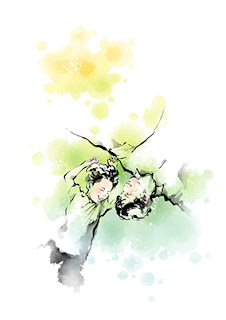In the Catholic Times' Light of the World column, the priest examines the virtue of hope and its demands.
He
often sees children arguing. They usually argue over trivial things,
and that is the way they will grow up. We as adults go about fighting
just as children, rather, adult fights are often more childish and
disastrous. There are various causes and aspects; we talk about
traditions, logic, and philosophy but the essence of the problem is a
quarrel over the relationship between reality and one's interest. Like
children, adults can't stand it when challenged or insulted.
Still,
many conflicts between generations, classes, and regions in society
were not helped by Corona 19: the downtrend in economy and employment,
and a sense of crisis caused by population decline. There may be people
who are not having a hard time but the public still considers employment
difficulties, living difficulties, and social isolation of young people
as major difficulties.
There are also conflicts of interest
that exist within the young, but on the outside, they see the unfairness
of society, disappointment with the older generation, and wrong-headed
political forces and social atmosphere, which dismiss them as a
generation without passion and recognize them as "one vote" without
empathy and affection.
To
solve problems beyond conflict and confrontation, to embrace different
views, and pursue harmony, efforts and discourse to improve structured
injustice and pursue fairness are urgent. Also, we need to be adults,
rather than confrontation, to reflect on our responsibilities along with
finding alternatives. We are now talking about the right kind of hope
needed. The right hope should be responsible. Hope sympathizes and
helps, and makes someone desire to do something.
Adults should
work hard for that right hope. Both adults and children can fight and
argue, but wouldn't the weight of responsibility for society and
neighbors be different? To do this, a wise role of an adult is needed.
Ayako Sono of Japan suggests ways to grow old beautifully in
"Kairo-roku" (a record of being wary of old age), one of which is giving
up. We should never take the help that is given to us as something
natural if it is to benefit the other. Through the great virtues of
Christianity: "Humbling and emptying ourselves, giving, and laboring,"
we reflect deeper on what is required of us.
In the
Compendium of the Social Gospel of the Church: "By his work and
industriousness, man — who has a share in the divine art and wisdom —
makes the creation, the cosmos already ordered by the Father, more
beautiful. He summons the social and community energies that increase
the common good, above all to the benefit of those who are neediest"
(#266).
It's a place to change and heal society and share the
spiritual and social legacy. Come to think of it, it's really hard to
become an adult. But through such adults, children and the world will
learn the path of love, joy, and trust, and above all, true hope will be
obtained.
"Human society must primarily be considered something pertaining to the spiritual. Through it, in the bright light of truth men should share their knowledge, be able to exercise their rights and fulfill their obligations, be inspired to seek spiritual values, mutually derive genuine pleasure from beauty of whatever order it be, always be readily disposed to pass on to others the best of their own cultural heritage and eagerly strive to make their own the spiritual achievements of others" (#386).




